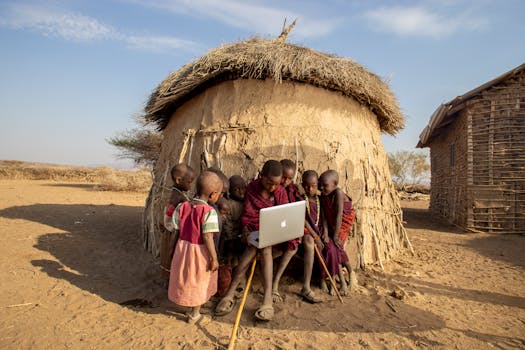
Cultural Shifts and Societal Trends Leading to 2025: Understanding the Future
Cultural shifts and societal trends are cultural shifts and societal trends that have the power to transform our world. As we approach 2025, it’s essential to understand the significant changes that will shape our lives, from technological advancements to shifting social norms. In this article, we’ll delve into the key factors that will influence our world in the years to come.
Section 1: Technological Advancements
The pace of technological change is accelerating, and by 2025, we can expect significant advancements in fields like artificial intelligence, blockchain, and the Internet of Things (IoT). These technologies will transform industries, create new job opportunities, and change the way we live and interact with one another. For instance, AI-powered chatbots will become more prevalent, enabling businesses to provide 24/7 customer support and improving the overall user experience.
Impact of Technological Advancements on Society
The impact of technological advancements on society will be profound. As automation replaces certain jobs, there will be a need for workers to develop new skills to remain relevant in the job market. Additionally, the rise of remote work will continue, allowing people to work from anywhere and promoting a better work-life balance. However, this shift will also raise concerns about data privacy, cybersecurity, and the potential for increased social isolation.
Section 2: Changing Social Norms
By 2025, we can expect significant changes in social norms, driven by shifting cultural values and increasing awareness of social and environmental issues. There will be a greater emphasis on diversity, equity, and inclusion, with a focus on creating a more just and equitable society. Furthermore, the #MeToo movement and other social justice movements will continue to shape our culture, promoting a culture of respect, empathy, and understanding.
Impact of Changing Social Norms on Business and Society
The impact of changing social norms on business and society will be far-reaching. Companies will need to adapt to these changes by implementing policies and practices that promote diversity, equity, and inclusion. This will not only enhance their reputation but also contribute to creating a more positive and productive work environment. Moreover, the shift towards sustainability and environmental awareness will drive innovation, with businesses developing new products and services that reduce waste, conserve resources, and promote eco-friendly practices.
Section 3: The Rise of Sustainable Living
Sustainable living will become an increasingly important aspect of our lives by 2025. As concerns about climate change, pollution, and waste management grow, individuals, businesses, and governments will need to work together to create a more sustainable future. This will involve adopting renewable energy sources, reducing carbon emissions, and promoting eco-friendly practices in all aspects of life.
Impact of Sustainable Living on the Environment and Human Health
The impact of sustainable living on the environment and human health will be significant. By reducing our reliance on fossil fuels, decreasing pollution, and promoting eco-friendly practices, we can mitigate the effects of climate change, protect biodiversity, and improve public health. Moreover, sustainable living will also have economic benefits, creating new job opportunities in the renewable energy sector, reducing healthcare costs, and enhancing the overall quality of life.
Section 4: The Future of Work and Education
The future of work and education will undergo significant changes by 2025. With the rise of automation and AI, there will be a need for workers to develop new skills to remain relevant in the job market. Furthermore, the traditional model of education will be disrupted, with a greater emphasis on online learning, skill-based training, and lifelong education. This will enable individuals to adapt to the changing job market and stay competitive in an increasingly automated world.
Impact of the Future of Work and Education on Society
The impact of the future of work and education on society will be profound. As workers develop new skills and adapt to the changing job market, there will be a greater emphasis on continuous learning, innovation, and creativity. This will drive economic growth, improve productivity, and enhance the overall quality of life. Moreover, the shift towards online learning and skill-based training will increase access to education, enabling people from all over the world to acquire new skills and knowledge, regardless of their geographical location or socio-economic background.
Section 5: Conclusion
In conclusion, the cultural shifts and societal trends leading to 2025 will be shaped by technological advancements, changing social norms, the rise of sustainable living, and the future of work and education. As we navigate these changes, it’s essential to be aware of the potential challenges and opportunities that lie ahead. By understanding these trends and adapting to the changing world, we can create a brighter, more sustainable future for all.




